Success is often attributed to factors such as innovative products, robust marketing strategies, and strong financial management.
While these elements are undeniably important, there’s a more fundamental factor that is frequently overlooked: self-awareness.
Understanding oneself, including strengths, weaknesses, values, and motivations, forms the bedrock upon which successful businesses are built.
This blog post explores the pivotal role self-awareness plays in entrepreneurship and provides actionable advice on developing this crucial trait.
Why Self-Awareness Matters
Self-aware leaders make better decisions because they understand their strengths and know how to leverage them.
At the same time, they recognize their weaknesses and seek help or delegate tasks accordingly. This balanced approach allows them to navigate complex business environments more effectively.
According to a study by Korn Ferry, executives who demonstrate high self-awareness are more likely to lead businesses that achieve higher financial performance (Korn Ferry, 2016).
This is because self-awareness helps leaders avoid the pitfalls of overconfidence and underestimation, leading to more strategic and calculated decisions.
Actionable Steps:
- Identify Strengths: Regularly evaluate your key strengths and find ways to utilize them in your business strategies. For instance, if you excel in strategic planning, focus on long-term vision and leave operational details to others.
- Acknowledge Weaknesses: Recognize areas where you lack expertise and consider hiring experts or delegating tasks. This prevents critical errors and leverages the full potential of your team.
- Seek Feedback: Implement a system for receiving constructive feedback from your team and peers to enhance decision-making processes. This can be through anonymous surveys or regular one-on-one meetings.
Improved Leadership Skills
Self-awareness fosters emotional intelligence, a critical component of effective leadership. Leaders who are in tune with their emotions and those of their team members can inspire, motivate, and manage more effectively.
Emotional intelligence involves self-regulation, empathy, and social skills, which are all enhanced by self-awareness.
Research from Harvard Business Review shows that leaders with high emotional intelligence create more engaged and productive work environments (Harvard Business Review, 2017). These leaders are better equipped to handle stress, manage conflicts, and build strong, cohesive teams.
Actionable Steps:
- Practice Emotional Regulation: Engage in mindfulness or stress-relief exercises to better manage emotional responses. Techniques like deep breathing, meditation, and yoga can help maintain composure under pressure.
- Develop Empathy: Actively listen to your team members and show genuine interest in their perspectives and concerns. This not only builds trust but also enhances team cohesion.
- Continuous Learning: Regularly attend leadership development workshops focused on emotional intelligence. This will help you stay updated on best practices and new insights in leadership.
Enhanced Relationships
Understanding one’s own behavior and how it impacts others improves communication and relationship-building. This is essential for networking, negotiating, and maintaining strong team dynamics.
Self-aware leaders are more likely to create an inclusive work environment where diverse perspectives are valued. They are also better at managing their reactions and responses in various situations, which helps in maintaining professional relationships.
Actionable Steps:
- Improve Communication Skills: Practice clear and empathetic communication to foster better relationships with your team and clients. This includes active listening, clear articulation of ideas, and open-mindedness.
- Build Trust: Be consistent, reliable, and transparent in your interactions to build and maintain trust. Trust is the foundation of any strong relationship, whether it’s with clients, team members, or stakeholders.
- Seek Diverse Perspectives: Encourage a culture of openness where diverse viewpoints are valued and considered. This not only improves decision-making but also fosters innovation.
Developing Self-Awareness
Reflective Practices
Engaging in regular self-reflection is a powerful way to gain insights into your thoughts, emotions, and behaviors. Self-reflection can help you understand why you react the way you do and how you can improve. This process can be enhanced by documenting your experiences, practicing mindfulness, and seeking feedback.
Actionable Steps:
- Journaling: Write down your daily experiences, feelings, and reactions to identify patterns and areas for improvement. This practice can reveal triggers and recurring themes in your behavior.
- Mindfulness Meditation: Practice mindfulness to increase awareness of the present moment and regulate emotional responses. Mindfulness helps you stay grounded and reduces reactive behaviors.
- Feedback Seeking: Actively seek constructive feedback from peers, mentors, and team members to gain external perspectives. This feedback can provide valuable insights into how others perceive you and highlight blind spots.
Strengths and Weaknesses Analysis
Conducting a thorough analysis of your strengths and weaknesses is crucial for personal and professional development. Tools like SWOT analysis (Strengths, Weaknesses, Opportunities, Threats) can help you understand your unique qualities and how to leverage them for success.
Actionable Steps:
- SWOT Analysis: Regularly perform a SWOT analysis to identify and leverage your strengths while addressing weaknesses. This structured approach helps in strategic planning and personal growth.
- Action Plan: Develop a plan to work on weaknesses, such as taking courses or seeking mentorship in areas where you need improvement. This proactive approach ensures continuous development.
- Leverage Strengths: Focus on projects and tasks that align with your strengths to maximize efficiency and success. By playing to your strengths, you can achieve better results and enjoy your work more.
Personality Assessments
Utilizing personality assessments can provide deeper insights into your inherent traits and how they influence your behavior. Instruments such as the Myers-Briggs Type Indicator (MBTI) or the Big Five Personality Traits can offer valuable information.
Actionable Steps:
- Take Assessments: Complete personality assessments to understand your core traits and how they influence your behavior. These insights can help you understand your natural tendencies and how to manage them effectively.
- Share Results: Discuss assessment results with your team to foster mutual understanding and improve team dynamics. This transparency can enhance teamwork and collaboration.
- Role Alignment: Use assessment insights to align roles and responsibilities with individual strengths and preferences. This ensures that each team member is in a role that suits their abilities and interests.
How Personal Growth Led to 300% Business Growth
Personal growth is a continuous journey of improving oneself through various methods such as education, self-reflection, and new experiences.
For me, this journey of personal growth was transformative and directly influenced the trajectory of my business. By dedicating time and effort to my personal development, I not only became a better leader but also saw a significant improvement in my business performance.
The Results: 300% Business Growth
By committing to personal growth, I was able to identify and address my weaknesses, leverage my strengths more effectively, and develop better relationships with my team and clients. This comprehensive approach to self-improvement resulted in a remarkable 300% growth in my business. The key elements that contributed to this growth included:
Actionable Steps:
- Invest in Education: Regularly attended workshops, seminars, and courses to stay updated on industry trends and leadership practices.
- Set Personal Goals: Established clear personal development goals that aligned with my business objectives.
- Getting real with myself: You can’t solve problems with the same mind that created them. Rather, I focused on where I know I needed to improve because it was negatively impacting those around me. Then I worked on understanding my own triggers and how I can make space for the good and the bad with grace and kindness.
- Implement Learnings: Applied the knowledge and skills gained from personal growth activities directly to my business strategies and operations.
Set Clear, Authentic Goals
Aligning your business goals with your personal values and strengths ensures that you are motivated and committed to achieving them. Authentic goals not only drive motivation but also ensure sustainable growth. They help you stay true to yourself and your vision, which is crucial for long-term success.
Actionable Steps:
- Define Values: Clearly define your core values and ensure your business goals reflect them. This alignment helps you stay focused and motivated.
- SMART Goals: Set Specific, Measurable, Achievable, Relevant, and Time-bound (SMART) goals. These clear and structured goals are easier to track and achieve.
- Regular Review: Regularly review and adjust your goals to stay aligned with your values and business direction. This ensures that your goals remain relevant and achievable as circumstances change.
Build a Complementary Team
Surrounding yourself with individuals whose strengths complement your weaknesses creates a balanced and effective team. This not only balances the skill set within your business but also fosters a culture of collaboration and mutual respect.
Actionable Steps:
- Identify Gaps: Conduct a skills gap analysis to identify areas where your team needs strengthening. This analysis helps you understand where additional skills or expertise are required.
- Targeted Hiring: Hire individuals with skills that complement your weaknesses. This strategic approach ensures that your team is well-rounded and capable of tackling diverse challenges.
- Foster Collaboration: Encourage a culture where team members collaborate and leverage each other’s strengths. This collaborative environment enhances productivity and innovation.
Continuous Learning and Adaptation
The journey of self-awareness is ongoing. Committing to continuous learning and adaptation is crucial for personal and professional growth. Staying updated on the latest leadership techniques and self-awareness practices ensures that you are always improving.
Actionable Steps:
- Attend Workshops: Regularly attend workshops and seminars on leadership and self-awareness. These events provide new insights and techniques that can enhance your self-awareness.
- Read Widely: Engage with books and articles on self-awareness and personal development. Continuous reading keeps you informed and inspired.
- Seek Mentorship: Maintain regular interactions with a mentor to receive guidance and perspective. A mentor can provide valuable advice and help you navigate challenges effectively.
Wrapping It Up
Self-awareness is not a one-time achievement but a continuous process of introspection and growth. For entrepreneurs, this journey is not just beneficial but essential.
By understanding and embracing your true self, you lay a solid foundation for your business, enabling it to thrive in an ever-changing business environment.
More importantly, you’re more adept to adversity and in the face of challenges, you learn to navigate them with grace.





